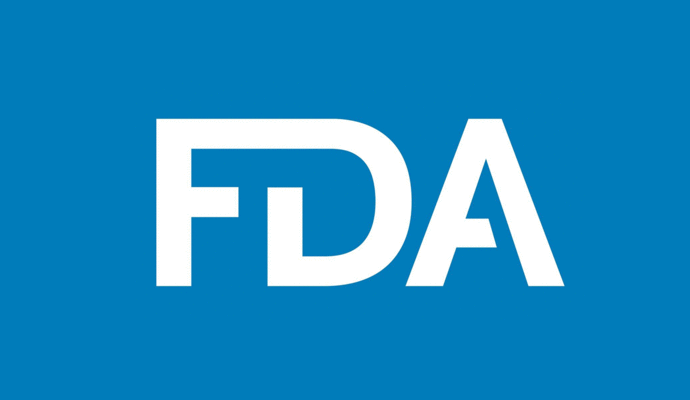FDA Approves Takeda’s Von Willebrand Disease Treatment
Other recent FDA Approvals include a T-cell receptor for adults with unresectable or metastatic uveal melanoma and insomnia treatment.

Source: Getty Images
- FDA recently approved Takeda Pharmaceutical’sPharmaceutical’s Vonvendi for routine prophylaxis to reduce the frequency of bleeding episodes in patients with severe Type 3 von Willebrand disease (VWD) receiving on-demand therapy.
Vivendi is the only recombinant von Willebrand factor (VWF) replacement therapy and the first and only FDA-approved treatment for routine prophylaxis in adults with severe Type 3 VWD and on-demand and perioperative bleed management in adults with VWD.
“This approval is a major advancement for those living with severe Type 3 VWD and is a testament to Takeda’sTakeda's commitment to improving VWD care,” Heather Dean, vice president, US hematology franchise head of Takeda, said in the announcement.
“With routine prophylactic treatment, there is now a proactive strategy available for management of bleeding episodes and may offer people living with severe Type 3 VWD hope that bleed reduction is possible,” Dean continued.
VWD is an inherited disorder caused by a deficiency or impaired function of VWF, one of several types of proteins in the blood needed for proper blood clotting. Vivendi is an infused product specifically designed to replace the body's missing or dysfunctional VWF.
FDA based its approval on data from a prospective, open-label study, which evaluated the safety and efficacy of the treatment to reduce the frequency of bleeding episodes in 10 adult patients with severe Type 3 VWD previously treated on-demand.
In the study, the annual bleeding rates for all bleeds decreased from 5.0 to 2.3, a median reduction rate of 54.7 percent.
FDA Approves First T-Cell Receptor for Uveal Melanoma
FDA recently approved T-cell receptor (TCR) bispecific immunotherapy, Kimmtrak, to treat HLA-A*2:01-positive adults with unresectable or metastatic uveal melanoma (mUM).
Kimmtrak’sKimmtrak’s approval establishes many firsts, including the first TCR therapeutic to receive regulatory FDA approval, the first bispecific T-cell engager to receive FDA approval to treat a solid tumor, and the first and only therapy approved to treat unresectable or metastatic mUM.
“The approval of KIMMTRAK is a historic milestone and the culmination of years of dedication by the Immunocore team, patients, and our healthcare partners," Bahija Jallal, chief executive officer of Immunocore, said in the announcement.
“Kimmtrak is the first therapy to demonstrate a survival benefit to patients with this disease, and we are focused on making Kimmtrak available as quickly as possible,” Jallal continued.
FDA based its approval on results of Immunocore’sImmunocore’s Phase 3 clinical trial, which found that Kimmtrak compared to the investigator’sinvestigator’s drug choice in patients with previously untreated mUM demonstrated unprecedented median overall survival benefit as a first-line treatment.
Notably, the most common adverse reactions were manageable and consistent with the proposed mechanism.
FDA Approves Idorsia’sIdorsia’s Insomnia Treatment
FDA recently approved Quviviq (daridorexant) 25 and 50 milligrams to treat adult patients with insomnia, characterized by difficulties with sleep onset and sleep maintenance.
Quviviq is a dual orexin receptor antagonist that blocks the binding of the wake-promoting neuropeptides orexins. The drug decreases overactive wakefulness compared to treatments that generally sedate the brain.
“After more than 20 years of research and a progressive understanding of the role of orexin in sleep-wake balance and of the potential of orexin receptor antagonism, we designed daridorexant to help address several issues people with insomnia face,” Martine Clozel, MD, chief scientific officer of Idorsia, said in the announcement.
“Daridorexant properties include a potent inhibition of both orexin receptors, a rapid absorption for sleep onset, and a pharmacokinetic profile such that around 80% of daridorexant has been eliminated after a night of sleep to help minimize residual effects," Clozel continued.
FDA based its approval on an extensive clinical program, which included 1,854 adults with insomnia at over 160 clinical trial sites across 18 countries. Quviviq demonstrated significant improvement versus placebo on objective sleep onset and sleep maintenance measures and patient-reported total sleep time during the program.
Researchers evaluated the 50-milligram dose of Quviviq in one of two pivotal studies. The drug reduced patient-reported daytime sleepiness using a validated instrument in the study.
FDA stated that Quviviq should be classified as a controlled substance. The drug is expected to be available to patients in May 2022.
